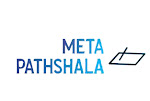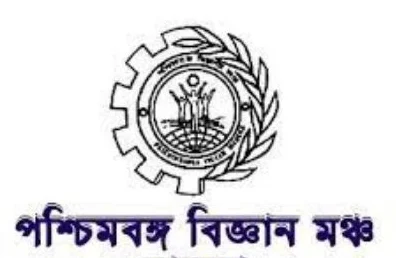কবে দেওয়া হবে বিজ্ঞান মঞ্চের পরীক্ষার ফলাফল ?
বিজ্ঞান মঞ্চের পরীক্ষার ফলাফল খুব তাড়াতাড়ি দেওয়া হবে l result প্রতিটা স্কুলে নোডাল শিক্ষকের কাছে পাঠিয়ে দেওয়া হবে l পরীক্ষার ফলাফল ঘোসনা হতে পারে আগামী জানুয়ারী মাসের শেষ সপ্তাহের দিকে l
এবছর বিজ্ঞান মঞ্চের পরীক্ষা অর্থাৎ বিজ্ঞান মেধা অন্বেষণ পরীক্ষা 2023 এর নাম নেওয়া হবে আগামী অগাস্ট মাস থেকে l নাম দিতে পারবে বিদ্যালয়ের শিক্ষকের কাছে l তাই তোমরা যদি ঠিক করে থাক যে এই বছর তোমরা বিজ্ঞান মঞ্চের পরীক্ষা অর্থাৎ বিজ্ঞান মেধা অন্বেষণ পরীক্ষা দিবে তাহলে নিচে দেওয়া লিংক থেকে বিগত বছরের প্রশ্ন গুলো দেখে প্রস্তুতি নিতে পারো l
Science popularization has a long history in West Bengal, with notable efforts made by the doyens of the renaissance movement in the early nineteenth century. However, it was in 1986 that Paschim Banga Vigyam Mancha (PBVM) initiated an organized People's Science Movement in the state. Over the past three decades, PBVM has become a prominent name in the field of science popularization, not only in West Bengal but also in India. This report aims to highlight the achievements, objectives, and experiences of PBVM in its efforts to promote scientific awareness and the utilization of science and technology for the betterment of society.
Objectives of PBVM:
Utilization of natural resources for the benefit of society: PBVM aims to create awareness among the people about the responsible utilization of natural resources for collective welfare.
Inspiration for the use of science and technology in daily life: PBVM strives to educate and inspire individuals about the practical applications of science and technology in their everyday lives.
Environmental awareness and public health: PBVM focuses on creating awareness about environmental issues and public health concerns, fostering a sense of responsibility towards the well-being of the environment and society.
Educating people about the harmful effects of certain products: PBVM aims to inform the public about the negative impacts of products produced by monopolistic capitalists, especially multinational corporations.
Encouraging scientific research and development: PBVM promotes and supports innovative and fundamental scientific research and development activities.
Struggle for scientific education in the mother tongue: PBVM advocates that science education be accessible and imparted in the local language.
The movement against fundamentalism, superstition, and unscientific ideas: PBVM works towards countering fundamentalist ideologies, superstitions, and unscientific beliefs through the promotion of scientific thinking and reasoning.
Opposing technology implementation against societal interests: PBVM opposes the implementation of any technology that goes against the interests of society.
Advocacy for people-oriented science and technology policies: PBVM campaigns for science and technology policies that prioritize the well-being of the people and address societal needs.
Publishing popular science materials: PBVM regularly publishes popular science magazines, books, monographs, and pamphlets to disseminate scientific knowledge to the masses.
Opposition to the use of science and technology in war: PBVM actively opposes the use of science and technology in warfare that can destroy human civilization.
Implementation of projects for national self-reliance: PBVM takes initiatives to promote self-reliance in the country through projects and programs that benefit the people.
Historical Context:
During the 1930s and 1940s, India witnessed the growth of the freedom struggle. Science education had already begun in colonial India, with the establishment of research institutes and the contributions of eminent scientists. Several scientific institutions, such as the Indian Association for Cultivation of Science and the Asiatic Society, were established during the nineteenth century in Bengal. Many renowned scientists, including Jagadish Chandra Bose, Prafulla Chandra Roy, C. V. Raman, and Meghnad Saha, actively participated in the freedom movement while conducting scientific research. As part of the freedom struggle, efforts were made to promote science as a means to combat superstitions and obscurantism. Although these were early forms of the People's Science Movement, they laid the foundation for future endeavors.



